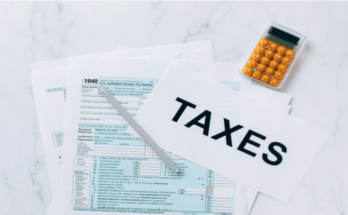Welcome to our blog post on accounting software designed specifically for sole traders and self-employed individuals. As a sole trader, managing your finances effectively is crucial to the success of your business. That’s why investing in reliable accounting software can make a significant difference in streamlining your financial processes and ensuring accuracy in your financial information. In this blog post, we will explore the benefits of using accounting software for sole trader, discuss key features to look for, provide tips for choosing the right software, and highlight some of the top options available in the market. Let’s dive in!
Benefits of using accounting software for sole traders
Using accounting software designed for sole traders offers several benefits that can greatly improve the financial management of your business.
Streamlines financial processes and saves time for sole traders
Accounting software automates repetitive tasks such as data entry, calculation, and report generation. This streamlines your financial processes and saves valuable time, allowing you to focus on your core business activities.
Provides accurate and up-to-date financial information to make informed business decisions
With accounting software, you can easily track and analyse your income and expenses in real-time. This provides you with accurate and up-to-date financial information, enabling you to make informed business decisions.
Automates invoicing and payment processes, ensuring timely payments and improved cash flow
Accounting software automates the invoicing and payment processes. This ensures that your clients are billed promptly and reminded of pending payments, leading to timely payments and improved cash flow for your business.
Helps with tax compliance by organising and categorising income and expenses
Accounting software helps you stay organised by categorising your income and expenses. This simplifies tax preparation and ensures you are compliant with tax regulations, saving you time and potentially reducing tax liabilities.
Features to look for in accounting software for sole traders
When choosing accounting software for sole traders, it’s important to consider the following features:
- User-friendly interface and easy navigation: Look for software that is intuitive and designed for non-accountants, making it easy to navigate and use.
- Expense and income tracking: The software should allow you to track both business and personal transactions, giving you a comprehensive overview of your finances.
- Integration with bank accounts and online payment platforms: Ensure the software can seamlessly import transactions from your bank accounts and online payment platforms.
- Customised financial reports: Look for software that allows you to generate customised reports, such as profit and loss statements and balance sheets, to gain valuable insights into your financial health.
By considering these features, you can find accounting software that best meets your needs as a sole trader.
Choosing the right accounting software for sole traders
When selecting accounting software for sole trader, it is important to consider the specific needs of your business and prioritise the features that are most important to you. Here are some factors to keep in mind:
- Identify specific accounting needs: Determine the specific requirements of your business, such as tracking income and expenses, managing invoices, or generating financial reports.
- Prioritise required features: Make a list of the must-have features and functionalities that you need in the software. This will help you narrow down your options.
- Consider scalability and future growth: Choose software that can accommodate the growth of your business. Look for options that offer scalability, additional features, and the ability to handle increased transaction volumes.
- Check compatibility: Ensure that the accounting software you choose is compatible with other business tools and software systems you use. Integration with banking platforms and online payment systems can also be beneficial.
- Read reviews and seek recommendations: Read reviews and feedback from other sole traders who have used the software. Seek recommendations from trusted sources to help guide your decision.
By considering these factors and doing thorough research, you can choose the right accounting software that meets the specific needs of your sole trader business.
Top accounting software options for sole traders and self-employed individuals
When it comes to choosing accounting software for sole trader and self-employed individuals, there are several options available:
1. QuickBooks
QuickBooks is a popular accounting software known for its user-friendly interface and robust features. It offers features such as invoicing, expense tracking, and financial report generation. QuickBooks also allows integration with other tools and platforms.
2. Xero
Xero is a cloud-based accounting solution that offers extensive integrations and automation. It provides features such as bank reconciliation, invoicing, and expense tracking. Xero also allows collaboration with accountants and other team members.
3. Wave
Wave is a free accounting software with basic features suitable for small businesses and freelancers. It offers features such as invoicing, expense tracking, and financial reporting. While it may not have as many features as paid software, it provides a cost-effective solution.
4. FreshBooks
FreshBooks simplifies invoicing and expense tracking for sole traders and self-employed individuals. It offers features such as time tracking, project management, and payment processing. FreshBooks also provides mobile apps for easy access on-the-go.
These are just a few examples of accounting software options available for sole traders and self-employed individuals. It is important to assess the specific needs and features required for your business before making a decision.
Understanding the cost of accounting software for sole traders
The cost of accounting software for sole traders can vary depending on a few factors, including the features included, the number of user licences needed, and any additional services provided. When evaluating the cost of this, it’s essential to consider the long-term benefits and time savings it can provide for your business.
Some accounting software offers tiered pricing plans, allowing sole traders to choose the most suitable option based on their needs and budget. It’s important to compare pricing plans and consider any additional costs, such as support or training fees.
While some software may have a higher upfront cost, it may provide advanced features and scalability that can accommodate your business’s growth.
Tips for successfully implementing accounting software for sole traders
Implementing accounting software for sole traders can greatly benefit their financial management processes. Here are some tips to ensure a successful implementation:
- Plan and set up the software according to the business’s specific financial processes. Take the time to understand how the software works and customise it to align with your needs.
- Ensure data accuracy by regularly reconciling bank statements with the software. This helps identify any discrepancies and ensures that your financial records are up to date and accurate.
- Train and educate staff on using the software effectively. Provide training sessions or resources to help them understand how to navigate the software and enter data correctly. This will maximise the benefits of the software for the entire team.
- Regularly update the software and take advantage of new features and enhancements. Software providers often release updates that improve functionality and address any bugs or issues. Stay updated to ensure you’re getting the most out of the software.
By following these tips, sole traders can successfully implement accounting software and optimise their financial management processes.
Conclusion
Choosing the right accounting software for sole trader and self-employed individuals is crucial for streamlining financial processes, ensuring accurate and up-to-date financial information, and improving business decisions. With a variety of options available, including QuickBooks, Xero, Wave, and FreshBooks, sole traders can find a software solution that meets their specific needs. It’s important to consider the features required, scalability, compatibility with other tools, and reviews from other sole traders. While the cost of its varies, it’s worth considering the long-term benefits and time savings it can provide. By implementing the software effectively and regularly updating it, sole traders can maximise its benefits and stay on top of their financial management. Contact Account Ease or call us at 0208 133 4599 for more information




